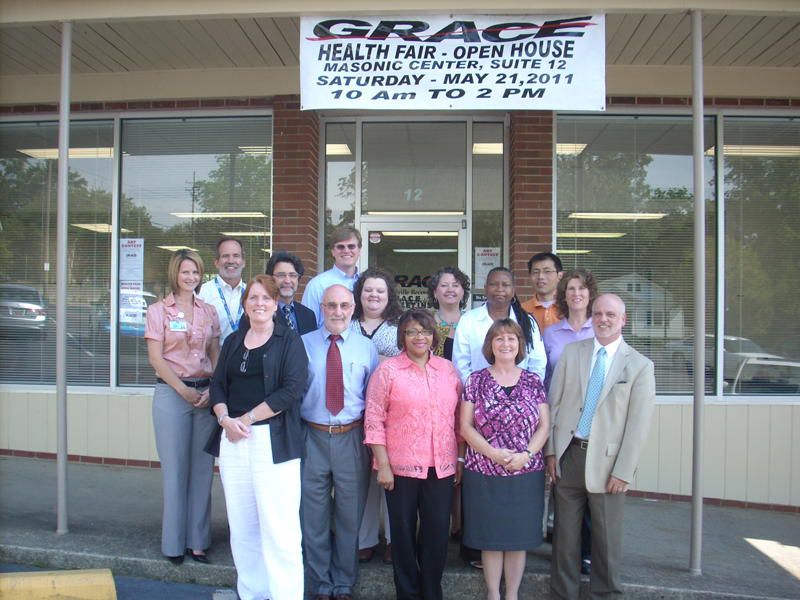GRANITEVILLE, S.C. — Boarded windows and shattered glass now decorate barren brick buildings that once stood as some of the South’s largest textile mills.
A train derailment is blamed for the town’s demise.
Graniteville is home to the South’s first large-scale cotton mill. Graniteville Mill was built in 1849 and its business drove the development of schools, churches and houses.
Throughout the next 150 years, the mill would see multiple changes in ownership. Operations continued through 2005. At the time, the town manufactured denim and flannel.
Today, rusted mailboxes welcome passersby to an area that is barely holding on.
“All the mills was running beforehand and now, we’ve got nothing,” former mill worker Josie Widener said. “It’s almost like a ghost town. Every time a train goes through you just wonder if it’s going to happen again.”

Widener spent 19 years at the mill. Her husband, Clyde, spent six.
“I worked what they call a beamer, and what I did was I separated the yarn, so they could put it on another warp to make the cloth,” she said. “We made denim.”
She said their job didn’t move overseas. It wasn’t outsourced. She said it was stolen.
“Well after the trainwreck, they just said that the chemicals and all was destroying the mills and they couldn’t run, so [the owner] closed them, sold everything and closed it down,” she said.
In January 2005, a Norfolk Southern train derailed. One of the freight cars was punctured. It caused a chlorine leak that spread throughout the town. Nine people died. Damages were extensive.
Avondale Mills closed in July 2006. Newspaper reports said the company would later settle with its insurance company for at least $215 million and the railroad for more than $110 million.
Fifteen-hundred people lost their jobs.
An editorial in the county newspaper, Aiken Standard, reads, “The fat cats have played their legal games over the past three years, but the victims of the Graniteville train wreck remain all but forgotten. Avondale ownership will wind up with a significant amount of cash, money-rich Norfolk Southern will mark this down on its books as part of the cost of doing business, and insurance company Factory Mutual will make right with its stockholders.”
Clyde said his health also declined. He was eventually diagnosed with COPD. He said he smoked, but he also said he was caught in the middle of the chlorine spill.
“I mean it just caught me up and it’s hard to breathe,” he said.

When the mill shut down, she said it destroyed her life. Nothing, she said, has been the same since.
Avondale Mills closed in July 2006, less than two years after the derailment. An Aiken Standard Newspaper editorial from April 8, 2008, stated it would later settle with its insurance company for $215 million and the railroad for more than $110 million.
Fifteen-hundred people lost their jobs.
“The fat cats have played their legal games over the past three years…” an editorial from BLANK reads “…but the victims of the Graniteville train wreck remain all but forgotten. Avondale ownership will wind up with a significant amount of cash, money-rich Norfolk Southern will mark this down on its books as part of the cost of doing business, and insurance company Factory Mutual will make right with its stockholders.”
Clyde said he wondered what he was going to do, and then his health quickly declined.
“This is my medicine,” he said. “This is my inhaler. This is for this. I need to use this three times a day. This once a day and this twice a day.”
Clyde lives with COPD. He admits he smoked, but he also said he was caught right in the middle of the chlorine spill.
“I mean it just caught me up and it’s hard to breathe,” he said.

Faith is one of the few things people had left to hold on to.
Louisiana Wright Sanders is a minister at the Bethlehem Baptist Church. She helped establish the Graniteville Recovery and Chlorine Epidemiology Study Center (GRACE).
“And at that clinic we tested the mill workers, the capacity of their lung breathing,” she said.
The records from 1,807 mill workers were used from four years before and 18 months after the disaster. The study concluded mill workers faced reductions in lung function immediately after the incident and the number of mill workers experiencing a decline significantly increased in the 18 months immediately after the chlorine disaster.
“That made me feel pretty bad, because all of my siblings live here, right at a stone’s throw from that railroad,” Wright Sanders said. “And we have since lost one of our brothers and even though it was years later that he passed, he suffered from cancer in his sinuses for 20 years.”
She said she can’t say whether the chlorine leak is the reason her brother’s demise.
“I’m not a doctor, so I don’t know if it caused it, but I think the side effects may have increased the condition because he was a three-time cancer survivor,” she said.
Despite her work, Wright Sanders said she feels like it wasn’t enough.

Gail P. Toole is the vice president of a local real estate company.
“[Graniteville residents] had major issues from breathing all of that stuff,” Toole said. “Lawyers started popping up like weeds in a field, and so it was a trying time.”
According to Aiken County records, through at least 2015, the Graniteville area experienced some of the lowest property values in the county. That year, home sales throughout District 6, which Phil Napier now represents, sat $51,675 below the county average.
“It was null and void,” Toole said. “There wasn’t anything going on down there. You certainly couldn’t sell the homes because you couldn’t tell what kind of damage was done and nobody wanted to move down there because they didn’t know what kind of repercussions were going to you know happen with all of the chemicals and stuff, so I mean as far as the Graniteville area, it just went stalemate.”
Today, signs advertising newly-built subdivisions sit along some of the roads throughout Graniteville.
The United States Army Cyber Command and the Cyber Center of Excellence is located at Fort Gordon, soon to be renamed to Fort Eisenhower. It is situated across the border in Georgia, near Augusta.
“And so that’s why it’s growing,” Toole said. “Everybody doesn’t want to live in Augusta, so they’re coming this way.”

However, those subdivisions sit outside downtown Graniteville.
Wright Sanders said she doesn’t feel the immediate area where the derailment occurred will ever fully recover from what happened.
“I feel that the outskirts has already begun to build because there are many, many homes that is coming up on the outskirts of Graniteville proper, but none of that seems to be filtering down to the immediate area of where the train disaster happened, and it probably won’t,” she said.
The series, “Off the Rails: Life after toxic train wrecks” explored the health effects as well as the financial burden Graniteville residents faced in the aftermath of the chemical leak. Throughout the series, residents also shared their advice for the people of East Palestine.
In a statement to Spectrum News 1, Norfolk Southern did not comment on the situation in Graniteville, but did provide the following statement on East Palestine.
“We have been firm in our commitment to making it right in East Palestine and the surrounding communities in eastern Ohio and Western Pennsylvania. Our employees and contractors remain embedded in the community to serve its residents, and we will remain in East Palestine for as long as it takes.”
Editor's Note: The story has been updated to include a statement from Norfolk Southern. (May 1, 2023)



